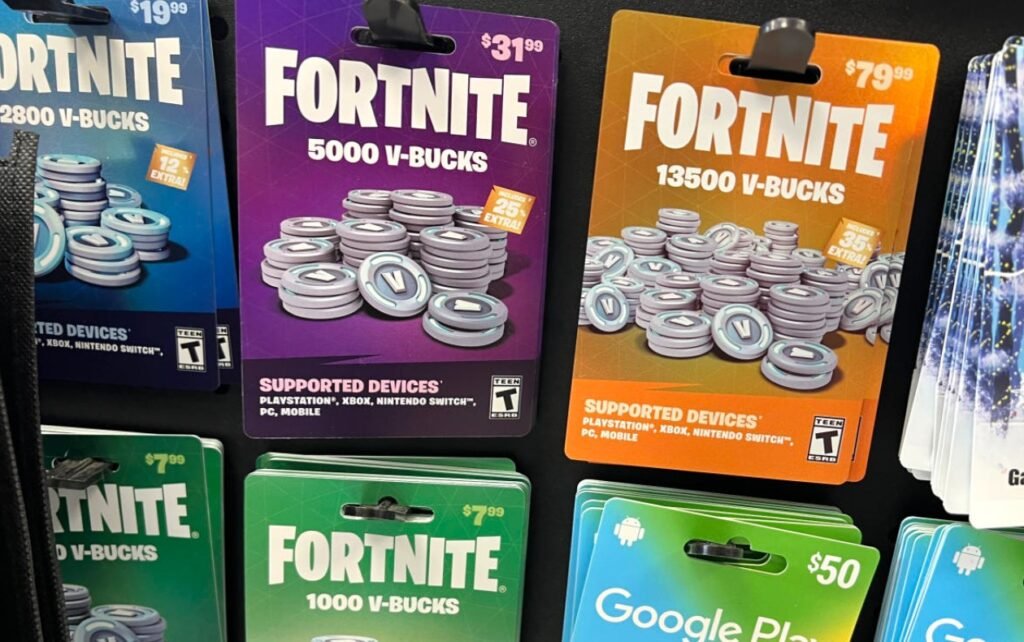The Federal Trade Commission (FTC) has announced the launch of a portal for Fortnite refunds, following a settlement with Epic Games over allegations of deceptive billing and refund practices. The portal allows parents and gamers who were charged for unwanted in-game purchases or had their accounts locked to apply for compensation.
Epic Games to Pay $245 Million for Tricking Users
According to the FTC, Epic Games, the company behind the popular online video game Fortnite, tricked users into making unwanted purchases by using design tricks known as “dark patterns”. These included a confusing button configuration that led players to incur charges based on the press of a single button, and a lack of clear disclosure of the prices and terms of the purchases. The FTC also accused Epic Games of locking the accounts of customers who complained about wrongful charges to their credit card companies.

The FTC filed a complaint against Epic Games in December 2022, alleging that the company violated the FTC Act and the Restore Online Shoppers’ Confidence Act (ROSCA). In March 2023, the FTC finalized a settlement with Epic Games, requiring the company to pay $245 million in a penalty, which will go toward refunding customers. A separate settlement over accusations that the company violated the Children’s Online Privacy Protection Act (COPPA) resulted in Epic Games agreeing to pay a $275 million penalty, for a total of $520 million in penalties.
How to Claim a Refund
The FTC has started contacting more than 37 million people by email to notify them that they may be eligible for a refund. The FTC will continue this process for one month. Those who wish to file a claim for a refund must be at least 18 years old. The deadline to apply for a refund is Jan. 17, 2024.
The FTC has launched a portal for Fortnite refunds on its website, where customers can check their eligibility and submit their claims. The refunds are available to:
- Parents whose children made an unauthorized credit card purchase in the Epic Games Store between January 2017 and November 2018
- Fortnite players who were charged in-game currency (V-Bucks) for unwanted in-game items (such as cosmetics, llamas, or battle passes) between January 2017 and September 2022
- Fortnite players whose accounts were locked between January 2017 and September 2022 after disputing unauthorized charges with their credit card companies.
The FTC advises customers to be wary of scammers who may try to impersonate the FTC or Epic Games and ask for money or personal information in exchange for a refund. The FTC reminds customers that it never asks them to pay to file a claim or get a refund.
Fortnite: A Global Phenomenon
Fortnite is an online video game that was launched in September 2017 and quickly became a global phenomenon. The game has more than 350 million registered players worldwide and has generated billions of dollars in revenue for Epic Games. Fortnite is known for its colorful graphics, cartoon-like characters, and frequent updates that introduce new features and events.
Fortnite is also famous for its collaborations with celebrities, musicians, athletes, and other brands. Some of the most notable examples include:
- A virtual concert by rapper Travis Scott that attracted more than 27 million viewers in April 2020
- A crossover with Marvel’s Avengers that featured characters like Iron Man, Thor, and Black Widow in August 2020
- A partnership with football star Neymar Jr. that allowed players to unlock his outfit and emotes in April 2021
- A collaboration with pop star Ariana Grande that included a musical performance and themed items in August 2021
- A team-up with rock band KISS that included a live show and exclusive cosmetics in September 2021
Fortnite is also involved in an ongoing legal battle with Apple over the removal of the game from the App Store in August 2020. Epic Games sued Apple, accusing it of abusing its monopoly power and charging excessive fees for app developers. Apple countersued Epic Games, alleging that it breached its contract and violated its policies. The trial took place in May 2021, but the judge has not yet issued a ruling.
